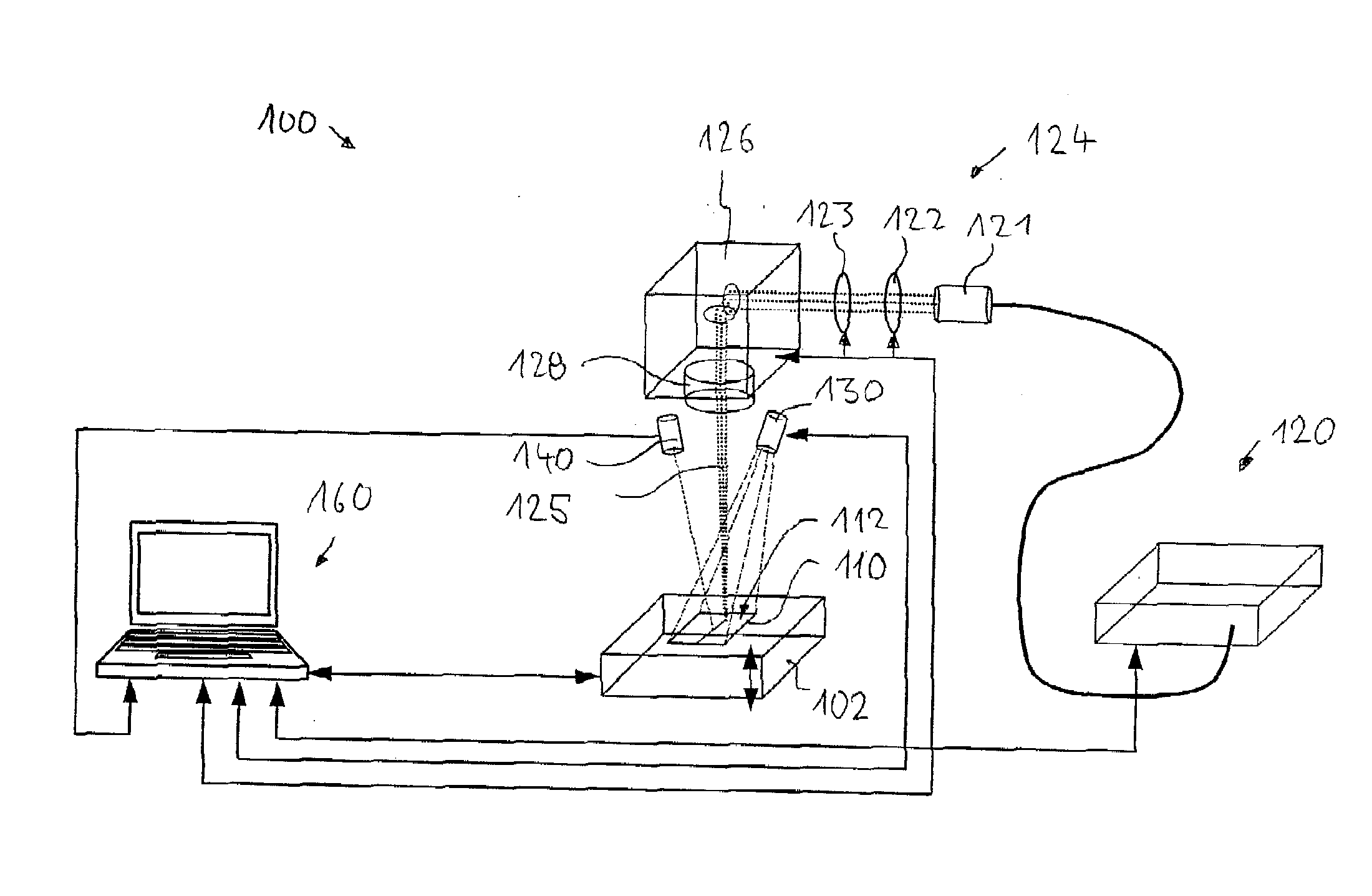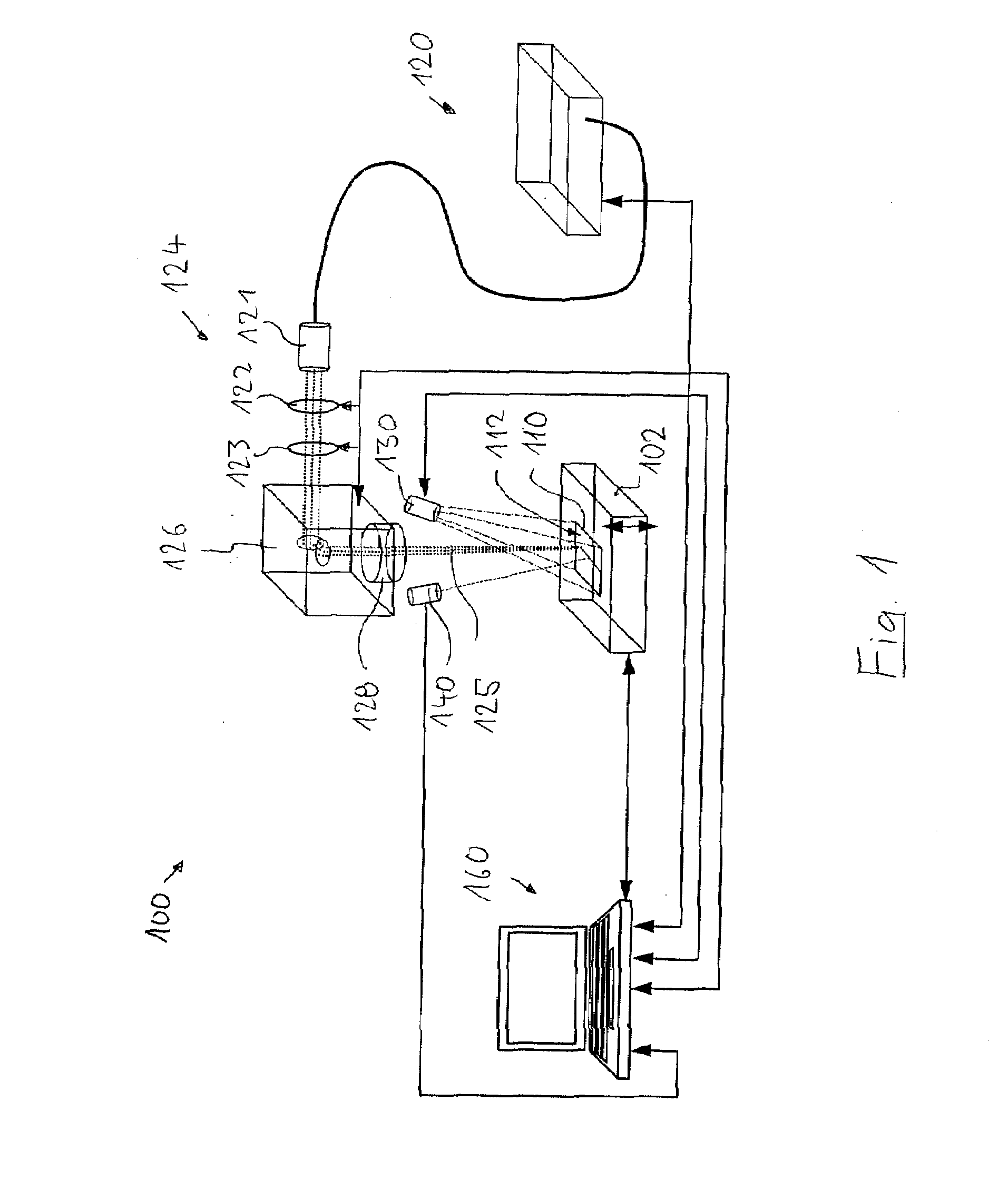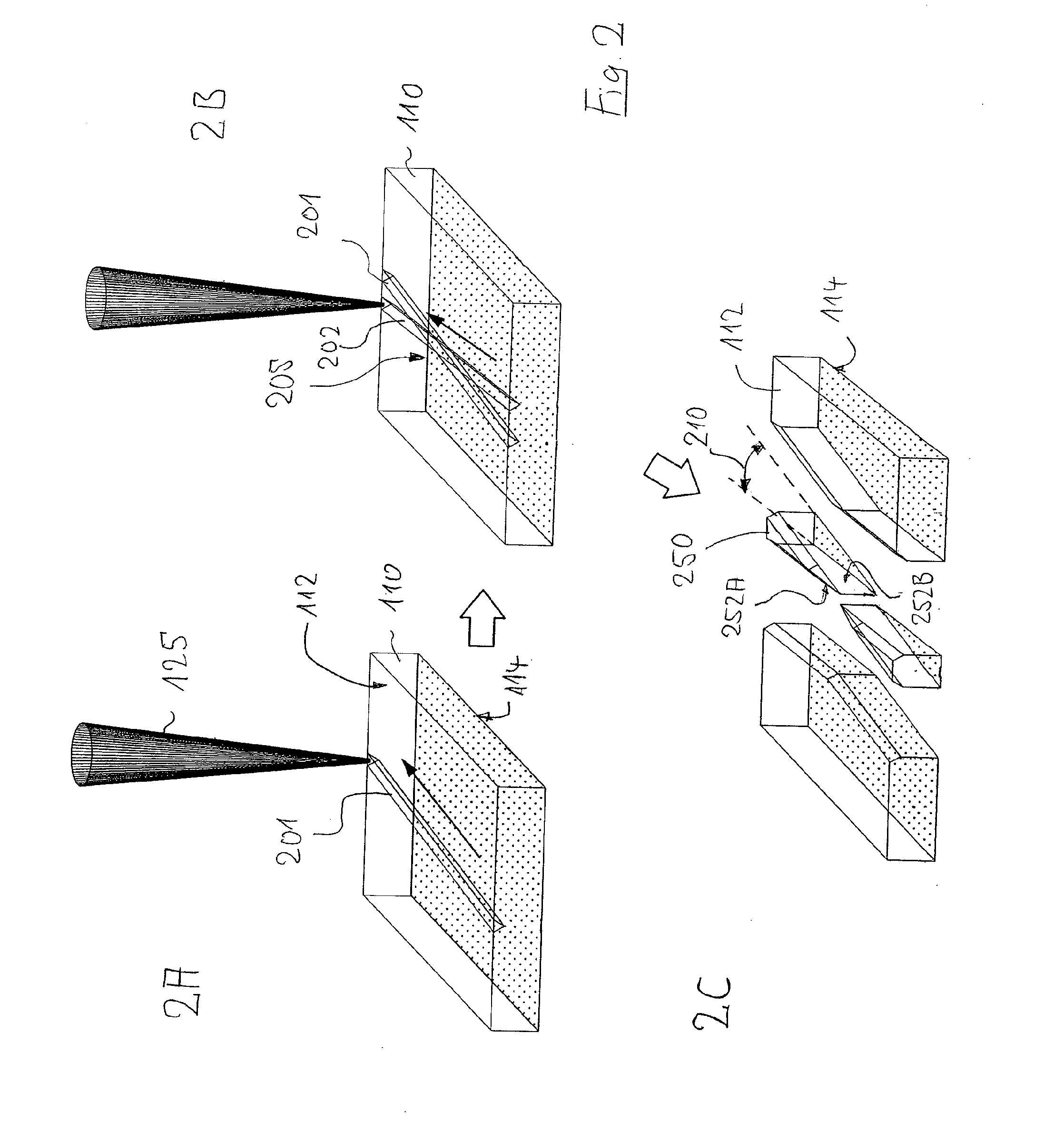Method and Apparatus for Producing Samples for Transmission Electron Microscopy
a transmission electron microscope and sample technology, applied in the direction of engine lubrication, liquid/fluent solid measurement, laser, etc., can solve the problems of reducing to below 1 nm, a multiplicity of partially very complex technologies for producing adequately thin, and a lack of electron-transparent areas on tem samples, etc., to achieve the effect of small damage, fast production, and effective localization and reproduction
- Summary
- Abstract
- Description
- Claims
- Application Information
AI Technical Summary
Benefits of technology
Problems solved by technology
Method used
Image
Examples
Embodiment Construction
[0060]FIG. 1 shows a diagrammatic illustration of essential components of an apparatus 100 for producing samples for transmission electron microscopy with the aid of focused laser radiation. The apparatus, which is also referred to as a sample preparation apparatus 100 below, is a laser microprocessing station which is designed as a table appliance and whose components are specifically designed for the purpose and coordinated with one another in order semiautomatically or fully automatically to produce from preprocessed or not specifically preprocessed substrates of different sample materials TEM samples which are suitable for ultrahigh resolution TEM examinations, in particular for TEM examinations with the aid of modern, aberration-corrected transmission electron microscopes largely with the avoidance of preparation artefacts (for example, near-surface amorphization).
[0061]A lifting table 102 which can be driven by an electric motor and functions as substrate holder for holding at...
PUM
| Property | Measurement | Unit |
|---|---|---|
| acute angle | aaaaa | aaaaa |
| thickness | aaaaa | aaaaa |
| thickness | aaaaa | aaaaa |
Abstract
Description
Claims
Application Information
 Login to View More
Login to View More - R&D
- Intellectual Property
- Life Sciences
- Materials
- Tech Scout
- Unparalleled Data Quality
- Higher Quality Content
- 60% Fewer Hallucinations
Browse by: Latest US Patents, China's latest patents, Technical Efficacy Thesaurus, Application Domain, Technology Topic, Popular Technical Reports.
© 2025 PatSnap. All rights reserved.Legal|Privacy policy|Modern Slavery Act Transparency Statement|Sitemap|About US| Contact US: help@patsnap.com



